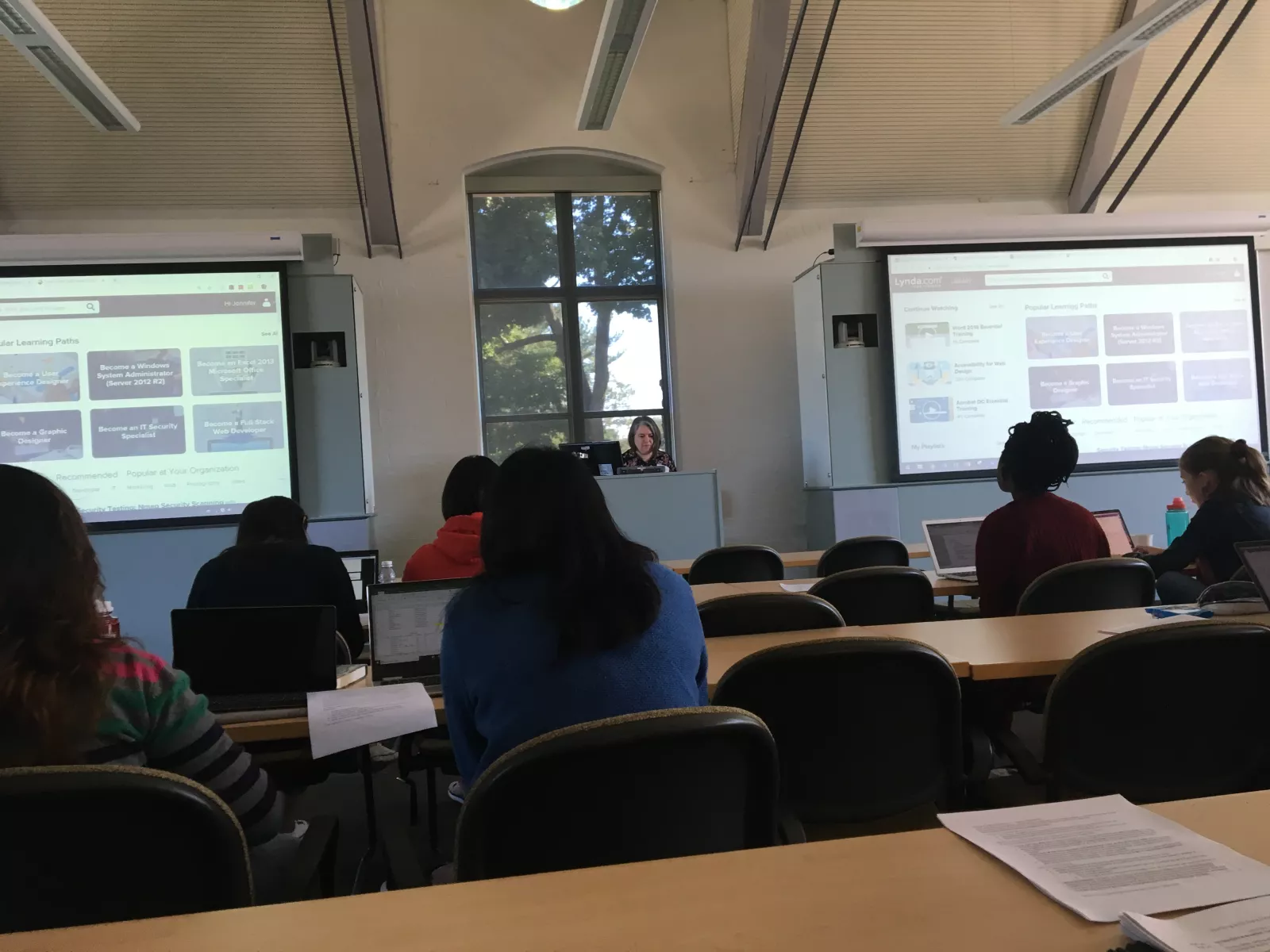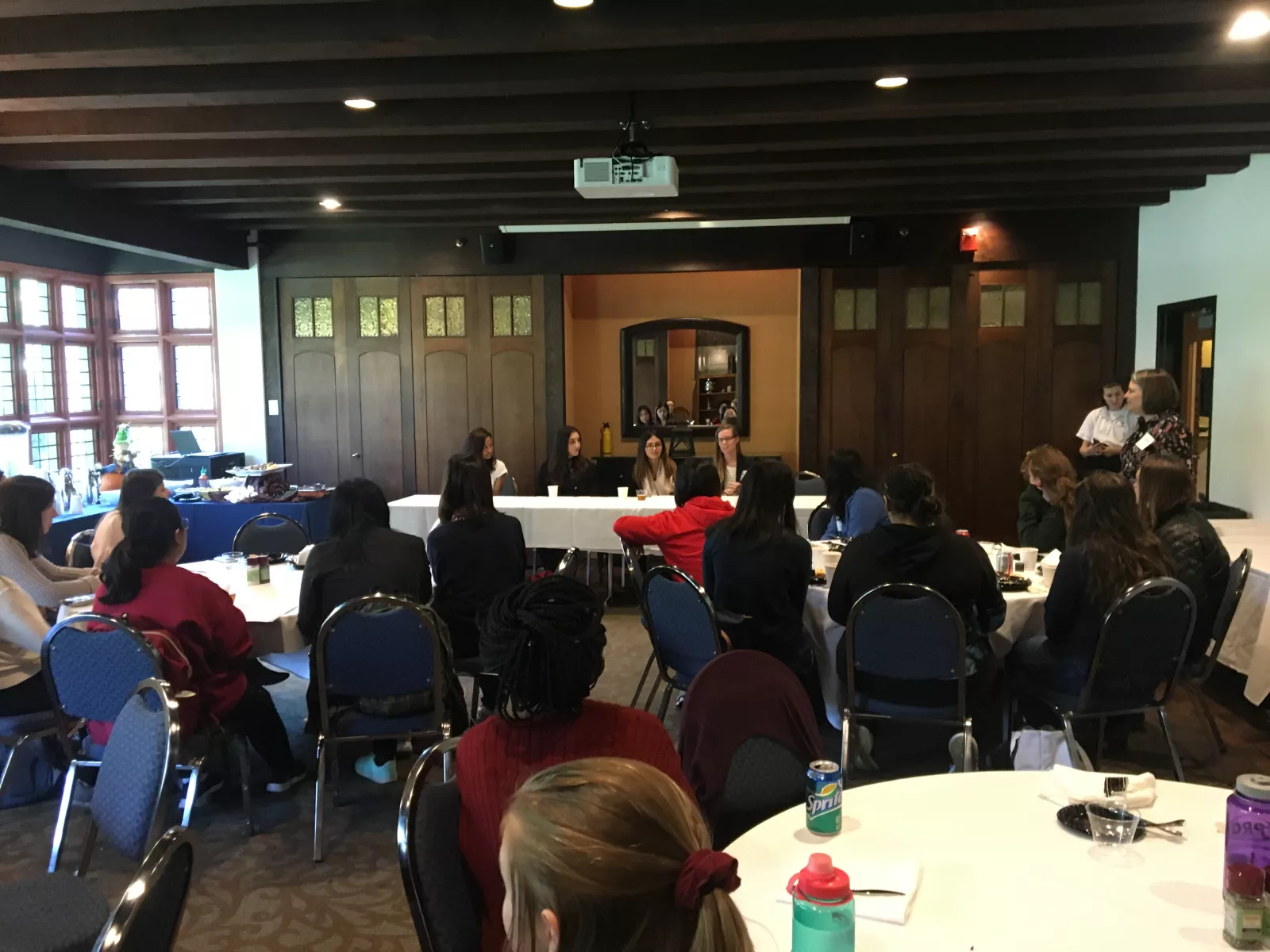Bryn Mawr College's Digital Competencies Program helps students build the digital skills and critical perspectives on technology needed for success in the digital age.
Data skills are in high demand, and Bryn Mawr students are ready. On September 29-30, over two dozen Bryn Mawr students participated in the Working with Data Intensive, a two-day mini-course jointly organized by LILAC and LITS. Intensive courses offer students the chance to explore different industries, explore key conceptual frameworks, and network with alumnae. Learn more about the Intensive program. The Working with Data Intensive was open to all majors and levels.
For the Working with Data Intensive, students worked through a curriculum designed to build their Data Digital Competencies in the areas of Data Management and Preservation and Data Analysis and Presentation. We were particularly interested in giving attention to the challenges posed by working with messy, real-world data, a topic which was also emphasized by our visiting expert panelists. We started the first day by exploring data wrangling in spreadsheets in Excel (which Bryn Mawr students can download for free!) and best practices for cleaning messy data, using the free OpenRefine tool. The curriculum for these workshops was based on material from the non-profit Data Carpentry organization, freely available for use online.
The following day, students picked between R and GIS workshops. The R workshop, led by Ella Foster-Molina, Social Sciences Quantitative Laboratory Associate at Swarthmore College, gave an introduction to the R programming language and R Studio in the context of analyzing data about United States voting patterns. The GIS workshop, led by the Bryn Mawr Cities program's Liv Raddatz, gave an introduction to geographic mapping concepts through ArcGIS software, available on campus computers. In this workshop, students used Philadelphia area data to work through problems like "which Philadelphia neighborhoods contain rivers that regularly flood?"
Students closed the weekend with "free play" data time, where students explored different datasets (see our resources page for more info), and took the time to reflect on the digital competencies and lock in their learning and next steps.
Two highlights of the weekend were the Saturday and Sunday lunch panels. The first panel focused on business applications of data, bringing in alums in the healthcare, finance, and entertainment fields. The alums discussed their current job duties, the digital competencies they currently use in their position, how they landed the position, and key technologies and software.
The second panel focused on academic research uses of data, and featured panelists Ella Foster-Molina from Swarthmore, Rachel Starry, a recent BMC Archaeology PhD graduate and current post-doc in data at the University at Buffalo, and BMC Psychology professor Anjali Thapar. The panel emphasized the realities of working with messy data in academic research, discussed their methods and training, and gave advice for students interested in working with data for research projects and in graduate school.
All in all, we were impressed by the high level of student interest and eagerness to work with data over the course of the weekend, and look forward to additional opportunities to help students build their data Digital Competencies in the future!

